Foods that Support a Healthy Immune System
If you’ve been to Riordan Clinic as a patient or are a regular reader of the Health Hunters newsletter, then you already know how much we believe in food as medicine. This month as we highlight the behaviors and supplements that support the immune system, we also want to share some foods that may have beneficial effects.
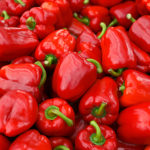 Red Bell Peppers
Red Bell Peppers
When you think of Vitamin C, bell peppers probably aren’t the first food that comes to mind. You may find it surprising that red bell peppers contain more Vitamin C than the average orange. That’s 127 mg to 45 mg, respectively. Red bells also have Beta Carotene, which your body converts to Vitamin A, an antioxidant and beneficial nutrient for the immune system.
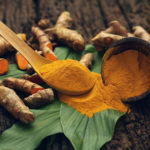 Turmeric
Turmeric
Turmeric has a wide range of benefits that might surprise you. Not only is it anti-inflammatory, but it may also help retain Beta Carotene found in other vegetables when cooked together. Both actions are beneficial for the immune system. Curcumin, one of the chemical constituents of turmeric, may have antiviral, antibacterial, and antifungal properties. 2
Adding turmeric to salad dressings and sprinkled over sautéed vegetables is an easy way to get more of the spice into your diet. It is also a star ingredient in many curry recipes.
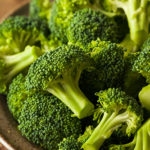 Broccoli
Broccoli
Broccoli is truly a wonder-food! Not only is it rich in Vitamin C, but it also has antioxidant, anti-inflammatory, and pro-detoxification properties. These benefits help support a healthy immune system and are the reason broccoli is often studied for its anti-cancer benefits.
Quick steaming broccoli (about 4 minutes) is a great way to preserve its nutrients and makes it an easy, healthy addition to any meal.
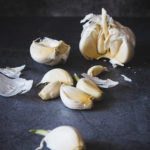 Garlic
Garlic
Garlic breath is a small price to pay for the health benefits contained in these mighty cloves. Garlic has been shown to have benefits for the immune and cardiovascular systems. One review of studies about garlic and its effects stated that “Garlic has immunomodulating effects by increasing macrophage activity, natural killer cells, and the production of T and B cells. Clinical trials have shown garlic to significantly reduce the number, duration, and severity of upper respiratory infections.” 1
Eating garlic raw helps preserve its nutrients, but it packs a potent flavor. If you can’t tolerate raw garlic, add chopped garlic near the end of cooking when preparing your favorite recipes.
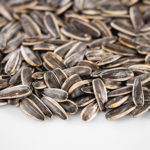 Sunflower Seeds
Sunflower Seeds
Sunflower seeds are tiny little nutrient powerhouses. They are a great source of Vitamin E, a fat-soluble antioxidant that also has anti-inflammatory effects. They are also rich in selenium, which is a necessary mineral for optimal immune function. 3
Sunflower seeds are best when eaten raw rather than roasted. They are great alone or for garnishing green salads, mixing into tuna or chicken salad recipes, or adding texture to your morning oatmeal.
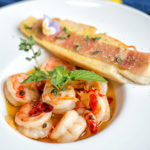 Shrimp
Shrimp
Shrimp is an excellent source of healthy Omega 3 Fatty Acids that support the nervous system and cardiovascular health. It also contains immune-boosting Selenium and the antioxidant Astaxanthin. Let’s not forget it also supplies a quick and easy to prepare source of protein.
These are just a few examples of foods with immune-boosting benefits. You can ensure a healthy body (and immune system) by incorporating various fruits and vegetables, lean protein sources, and healthy fats in your diet all year long.
Sources
- Karin Ried, Garlic Lowers Blood Pressure in Hypertensive Individuals, Regulates Serum Cholesterol, and Stimulates Immunity: An Updated Meta-analysis and Review, The Journal of Nutrition,Volume 146, Issue 2, February 2016, Pages 389S–396S, https://doi.org/10.3945/jn.114.202192
- Soheil Zorofchian Moghadamtousi, Habsah Abdul Kadir, Pouya Hassandarvish, Hassan Tajik, Sazaly Abubakar, Keivan Zandi, “A Review on Antibacterial, Antiviral, and Antifungal Activity of Curcumin,” BioMed Research International, vol. 2014, Article ID 186864, 12 pages, 2014. https://doi.org/10.1155/2014/186864
- Hoffmann, P. R., & Berry, M. J. (2008). The influence of selenium on immune responses. Molecular nutrition & food research, 52(11), 1273–1280. https://doi.org/10.1002/mnfr.200700330





